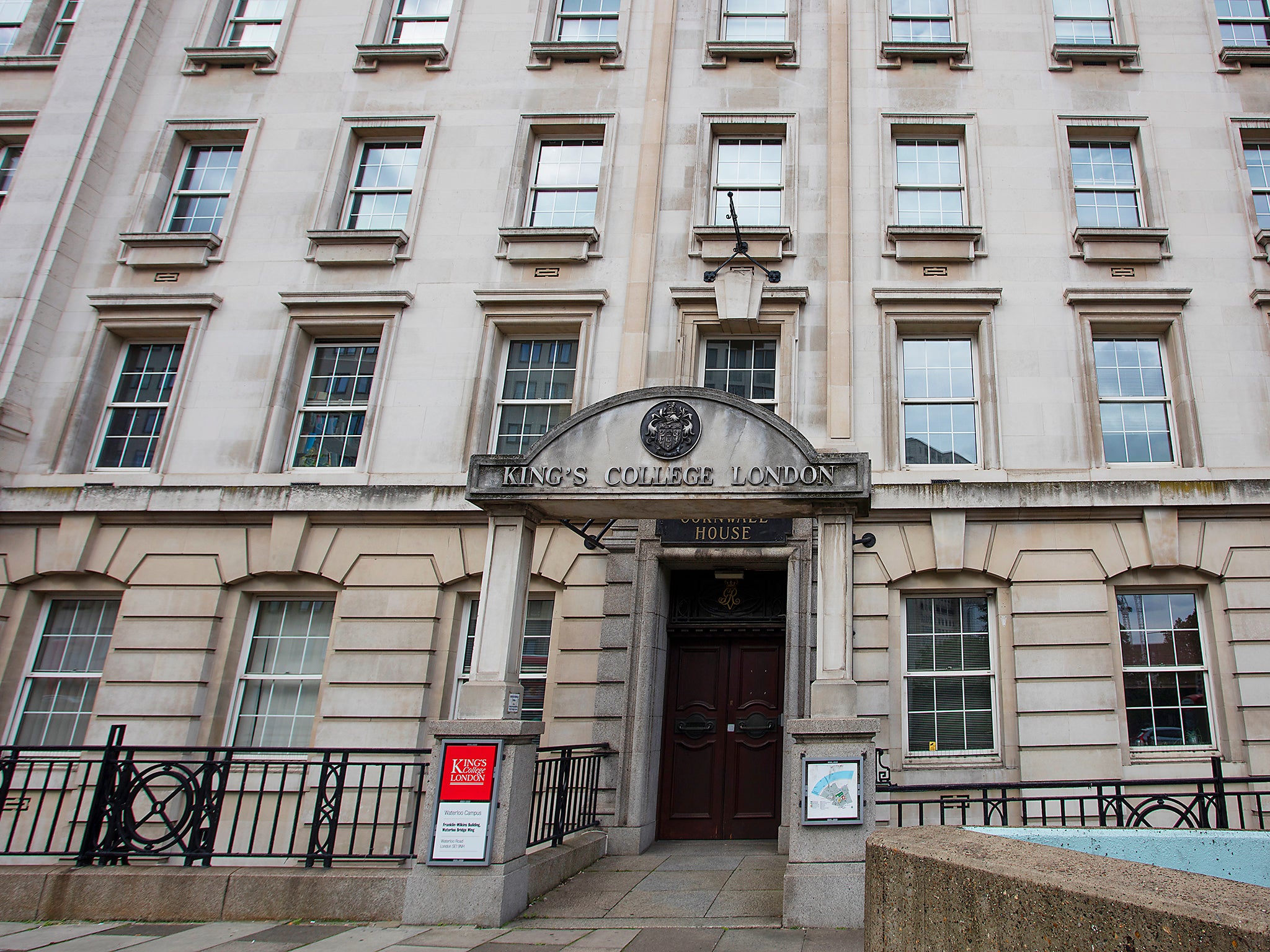I made sacrifices to get into university. But I’m not angry at the staff going on strike
Many of the staff I have spoken to are extremely apologetic about the disruption, but feel they have been left with no other choice, writes Mohammad Zaheer

Attending King’s College London was a dream of mine ever since I happened to chance upon its Strand campus as a teenager visiting the city for the first time. The eye-watering tuition fee for international students, however, meant that it was firmly out of my grasp for undergraduate studies. It took me over a decade, but I finally managed to save enough money to be able to attend for my postgraduate degree this academic year.
I mention all this so that you can better understand my frustration when I found out that after the struggle and sacrifice to get there, my course was now going to be disrupted by the university strikes. I am not alone in this predicament.
Over one million students in the UK will be affected when staff from 74 universities across the country walk out due to a dispute over their working conditions, pay and pension. With many modules having ten weeks of teaching, the four-week strike could mean that students at my university lose a third of their teaching time this semester.
This is extremely unfair for students, many of whom have spent a considerable sum of money to obtain what they felt would be a high-quality education.
Regardless of how it is spun, it is the tuition that most students think of when applying to university. It is extremely disingenuous to claim that students don’t need to be compensated for lost teaching time because the rest of the services and facilities were still functioning and available to them. The campus, student support services, libraries and other facilities – while no doubt important – are all supplementary. I also don’t believe that recorded online lectures or self-study options are an adequate replacement. This is not what students paid for.
However, my anger is directed not at the staff, who I believe are very justified in their grievances, but at the universities who are forcing their hand.
Changes to their pension scheme have meant that many university staff have to pay tens of thousands of pounds more into their pensions while being hundreds of thousands of pounds worse off in retirement.
Academics have also seen their pay decline in real terms by over 20 per cent and their job security and status whittled away in favour of casualisation. A University and College Union (UCU) survey in 2019 revealed that 70 per cent of researchers in higher education were on fixed-term contracts. Many of the teaching staff – disproportionately women and people of colour – were treated as casual workers and paid by the hour. Several have complained about constantly having to search and apply for jobs. This lack of job security can have a detrimental impact on their mental health and wellbeing, as well as distract them from the important work they do.
At the same time, the workload for many has grown exponentially, almost to unmanageable levels. This isn’t good for anybody involved. Lecturers being overworked, stressed or distracted can also have a negative impact on the learning experience of the students.
A 15 per cent gender pay gap is another reason university staff are striking, and rightly so. It’s 2020 and outrageous that such problems still persist.
There is still a lot of confusion among students, and even commentators, on the issue. For example, I have come across several students who are supportive of the strike, but critical of their peers claiming compensation for their missed lectures.
However, it is only when students express their frustration with the universities and demand they be compensated that there will be enough pressure on the administration to resolve the issue. The staff are not getting paid for the duration of their strike. Without any compensation, it will be the students who lose out in this scenario. The universities won’t be affected at all.
Many of the staff I have spoken to are extremely apologetic about the disruption, but feel they have been left with no other choice. No one wants to strike unless they absolutely have to. After all, it is a huge financial hit for the already underpaid workers to miss out on their earnings. Some have even expressed concerns about whether they will be able to pay their rent or living expenses.
The strike by university staff is a fight for the soul of higher education. It is one that I truly believe that everybody should support, especially the student body. After all, many of my fellow students and friends will go on to pursue a career in academia themselves. While they might feel inconvenienced now, if the strikes are successful in ushering in positive change, everyone benefits in the long run. I feel the same emotional ties to my university as many students do, but my main loyalty is with the striking staff.
Join our commenting forum
Join thought-provoking conversations, follow other Independent readers and see their replies
Comments